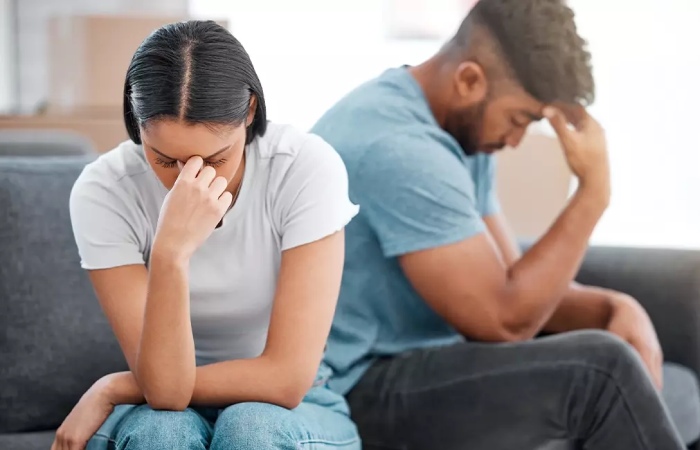If you’ve not ever heard of the connection between hormonal birth control and antidepressants, you’re not alone.
Read on to find out how they interact with each other and how it may affect you.
What birth control methods are we talking about?

Some hormonal birth control methods can interact with some medications used to treat depression. These include:
- tablet
- implant
- patch
- vaginal ring
However, there doesn’t seem to be any effect when using an intrauterine device (IUD) or a contraceptive injection.
Can one reduce the efficiency of the other?
“The good news is that there are no known interactions between usually prescribed antidepressants and various birth control methods,” clarifies Dr. Deborah Lee, a sexual and generative health specialist at Dr. Fox Online Medical & Pharmacy.
“These antidepressants include selective serotonin reuptake inhibitors such as fluoxetine, citalopram, escitalopram, and sertraline, and serotonin and norepinephrine reuptake inhibitors (SNRIs), such as venlafaxine and duloxetine.”
This means that none of the above antidepressants should interfere with the effectiveness of your birth control.
“When you take birth control hormones, liver enzymes break down these products daily and then remove them from the body,” Lee explains.
“Liver enzyme-inducing medications, such as St. John’s wort, stimulate the activity of liver enzymes, resulting in decreased levels of birth control hormones in the bloodstream.
“These low heights of estrogen and progesterone may not be enough to stop ovulation, and this increases the risk of unplanned pregnancy.”
The only types of birth control that are not affected are IUDs and injections.
If you are taking St. John’s wort, know that you will need to use a non-hormonal method of birth control, such as condoms, for 28 days after stopping the medication.
However, there is not much research on whether birth control can interfere with the effectiveness of antidepressants. As Lee states, “The effects of reproductive hormones on SSRIs are complex and not fully understood.”
According to the Middle for Disease Control and Deterrence (CDC), there is no evidence that hormonal birth control use is associated with changes in the effectiveness of SSRIs. However, the CDC notes that current evidence is limited.
Can they increase the side effects of each?
For antidepressants that do not appear to interact with birth control (SSRIs and SNRIs), there should be no differences in side effects.
But TCAs and MAOIs used with hormonal birth control can cause antidepressant side effects. Trusted Source.
Taking St. John’s wort and birth control pills can also lead to side effects like menstrual irregularities and bleeding between periods. Trusted Source.
Again, more Research must be done to determine why this might be happening.
Are there any positive effects? Can one make the other better?
Interestingly, there may be positive effects, too. But there is conflicting data.
A 2007 study by Reliable Source found that people with major depressive disorder who took combined hormonal preventives were significantly less depressed than those who did not take hormonal treatment.
And Lee says, “Scientific studies on the Depo-Provera injectable contraceptive, the patch, the vaginal ring, the implant, the IUD, and the IUD have not shown any negative association between the use of these approaches and low mood.”
However, a 2019 review said that hormonal contraception is likely to have adverse mood-related side effects in people with a history of gloomy episodes.
This is another area that requires further study.
Why haven’t I heard about the connection between them before?

There are two main reasons: There isn’t a lot of Research on this topic, and it’s rarely discussed at doctor’s appointments.
Lee highlights a 2015 Trusted Source review on mental health and contraception available in the American Journal of Obstetrics and Gynecology.
The authors “note that mental health has not received enough attention to date in the context of the contraceptive field and that there are many gaps in the research,” she says.
One of the most extensive Trusted Source studies on the link between birth control and unhappiness appeared in 2016. It found a link between all types of hormonal contraceptives and a diagnosis of depression.
So why aren’t there more studies?
“There are challenges associated with conducting mental health trials,” Lee says. “Trials often struggle to recruit participants, largely due to the stigma still associated with being diagnosed with a mental illness.”
She adds, “Research into women’s health has long been under-researched and underfunded. Trusted Source.”
This isn’t helped by the fact that depression “can be overlooked or even unnoticed in a busy sex clinic.”
How do you know if it will have a positive or negative effect?
Everyone’s hormone levels and bodily responses are different, so it’s hard to say.
“There’s no way to predict how you’ll feel with any of the options,” Lee says. “The only way to know is to try it.”
However, there are some tips you should follow.
First, Lee says, “It’s always important to carefully check whether it’s safe to take any conventional medications at the same time as using hormonal contraceptives.”
Then, it’s best to introduce one new medication at a time. “Otherwise, if you start taking two or more medications at the same time, it can be difficult to know which one is the culprit if you experience side effects.”
Common side effects of birth control include:
- headache
- nausea
- breast tenderness
Antidepressants have different side effects. Some side effects include:
- headache
- dizziness
- drowsiness
Lee adds that most side effects of oral contraceptives “are mild and go away within a few months of starting to use them.”
Side effects of antidepressants “are also likely to improve over time.”
What can you do to help regulate this?
It’s best to talk to your doctor or other healthcare provider before taking both birth control and antidepressants.
Be open with them about any medications you take, any history of mental illness, and how you’re currently feeling.
They will then be able to recommend the birth control or antidepressant that works best for you.
Once you start taking both forms of medication, Lee recommends keeping a journal and writing down how you feel every day, including any new symptoms.
If side effects occur, ” you have a written test as proof to show the doctor.”
They may change the dosage, discuss how to change methods and see if non-drug treatments can help.
Are there other mental or emotional side effects to consider?

Both birth control and antidepressants can have emotional side effects besides depression. Journal how you feel and see your doctor if you’re concerned.
They may recommend changing your dosage or switching to a new medication or birth control that’s less likely to cause emotional effects.
In a 2004 Trusted Source review of several studies, users of hormonal birth control had higher rates of the following expressive effects:
- depression
- anxiety
- neurosis
- compulsion
- anger
The review writers noted that it was impossible to say whether these effects were straight caused by hormonal birth switch due to a lack of investigation.
In contrast, a 2016 Trusted Source review found that most people using joint methods, such as combined pills or patches, experienced positive or unrelated mood effects.
However, you will find that birth control pills and ring manufacturers list mood changes as a possible side effect.
Some users have reported suicidal opinions and emotional numbness while taking antidepressants.
A 2014 study of more than 1,800 people found that more than half of people aged 18 to 25 experienced suicidal feelings.
And more than half of all participants said they didn’t feel like themselves, with 42 out of a hundred reporting “a decrease in positive feelings.”
Suicidal thoughts are most commonly associated with SSRI antidepressants, but they can be a side effect of either form.
As the study above showed, the risk is higher in younger people. Also, side effects are more likely when you first start taking antidepressants or your dosage changes.
Will changing birth control methods or antidepressants make a difference?
Switching to a combination known to have no interactions can be helpful if, for example, you are prescribed TCAs MAOIs or are taking St. John’s wort.
“If you are pleased with your birth control, have been on it for a while, and don’t want to change, I recommend switching your antidepressant,” Lee says. “However, this depends on each person’s situation and the specific side effects you experience.”
Suppose you’re wondering whether your side effects are related to your birth control or antidepressant. In that case, you can try switching to a non-hormonal copper IUD and continue taking your regular antidepressant to see if your indications improve.
“Time is a tool,” Lee notes. “It typically receipts 4 to 6 weeks for medications and hormones to clear your system completely, so always wait about 3 months after a change before deciding if things are better or worse.”
Remember: If you want to prevent pregnancy, check with your doctor before stopping any birth control.
What if you want to stop hormonal birth control altogether?
Some birth control approaches, such as the pill, can be stopped immediately, although it is best to wait until the end of the pack or cycle to avoid irregular bleeding and predict the start of your next period.
Others, such as the implant and IUD, require removal by a doctor or other health care professional.
In most cases, hormones leave the body within a few days. This means you will need to use a non-hormonal birth control method or a barrier method, such as condoms, immediately if you want to prevent pregnancy.
If injected, the effects of birth control can last much longer – around 3 months.
Unfortunately, some people experience side effects as a result of stopping birth control. Changes in your menstrual cycle are common and may include irregular periods, spotting, and lighter or heavier bleeding.
Conditions you experienced before you started taking birth control, such as acne, may also reoccur. On the other hand, any adverse side effects from your hormonal birth control should go away.
If you’re having trouble coping with the changes or haven’t had regular periods for 3 months after stopping, see your doctor.
Bottom Line
There’s still a lot to learn about the connection between birth control and antidepressants.
For now, you can safely take newer types of antidepressants, such as SSRIs and SNRIs, with any birth control method.
But whatever combination you choose, always check with your doctor before starting, changing, or stopping any medication.


